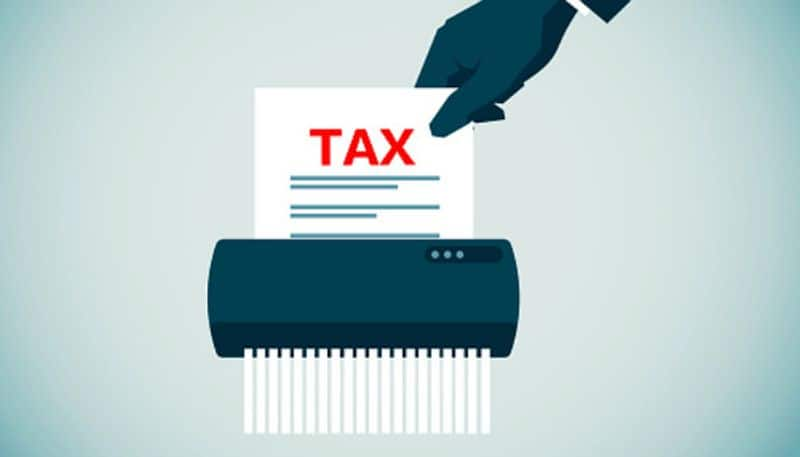A simple corporate tax cut will not bring the Indian economy out of this demand slump. So, what strategy should the government employ to increase consumption?
Let me be blunt. A corporate tax cut won’t be able to address the deep-rooted problem of a demand slump of the Indian economy. As an investor who has investing experience round the globe, I can tell you one thing that if the consumption in an economy falls, there is no other way that we can revive the economy except for increasing consumption. And, a corporate tax cut doesn’t necessarily guarantee that.
Also read: Deep Dive with Abhinav Khare: Analysing the economic slowdown
Last year, on September 20, finance minister Nirmala Sitharaman announced a corporate tax rate deduction from 30% to 22% and an even lower tax rate of 17% for manufacturing companies who have registered themselves after October 1, 2019. However, private investments are still low, and the GDP growth is again slumping. This indeed is a call for government intervention. Though I agree that this corporate tax cut is indeed a positive step in the long term which shall incentivize investment and alongside enhance the capabilities of companies to invest, this tax cut was to attract top electronics manufactures who are now looking to relocate owing to the US -China trade and tariff wars. These tax cuts are expected to increase the attractiveness of India as being the top investment destination. These tax cuts will increase corporate profits, will make their shares more attractive and simultaneously increase Sensex and Nifty indexes.
People who support the tax cut feel that it will change India’s branding as a high tax destination and will eventually revive private investment, which in turn will increase jobs which will increase disposable income. They feel that this tax cut will decrease the prices of goods and services, which will boost consumption. But this is an extremely long shot, considering that the results of such a tax cut will only show in the long run and all of this does depend on the will and wishes of corporates. Moreover, this certainly doesn’t address the recent stagnation of demand that India is facing now.
As per the Reserve Bank of India, the capacity utilization of India only increased marginally from 75% in the third quarter of the last fiscal year to 76.1% in the fourth quarter, which is extremely low. In such a scenario, how can we expect businesses to invest in low production facilities if the existing ones are functioning below their capacity? We must first revive the demand before corporates start investments and expansions. Moreover, it is estimated that this tax cut will cost India almost 0.7% of its GDP, or Rs 1.45 trillion. This reduces the government’s ability to support growth through spending. This tax cut only worsens India’s ever mounting fiscal deficit.
Thus, the corporate tax cut, which is expected to incentivize private investment, will not be able to show its true capabilities unless it is aided with measures which will boost consumer demand. I think a significant move in this direction would be the reduction of income tax rates or increasing the existing tax slabs, which will ensure that there is more money in the hands of people.
If we would like to put money in the hands of people to increase the demand, this is the fastest way to do it. With more personal disposable income, people are going to consume more. This additional spending will benefit even businesses, and this increased personal income will definitely be a good push for economic growth. In fact, with the increase in the money spent, the collection of GST will also improve. This, in the long term, will also act as an incentive for businesses to invest more in India.
The number of taxpayers for the annual year 2018-2019 stood at 84.6 million. This, however, included both individual income taxpayers and business entities. From 2009-10, the rate of growth of taxpayers has been 9.9% per year. Out of the total 58.7 million income tax returns filed last year, 55.3 million were individuals, which makes them 94.3% of the returns filed. If we just extend this proportion to the taxpayers, we will see that around 79million are individual taxpayers out of the 84.6 million, which is a significant number.
However, we should not forget that not all who file for income tax returns, pay taxes. Out of the 55.3 million of individuals who filed for taxes, 22.4 million did not pay any tax, So, only 60% of those who file for returns pay taxes. Extending the same percentage to the 79 million individual income taxpayers, around 47.4 million people paid taxes last number. However, we should not consider this to be a small number. Most of these are households, given the low participation of women in the workforce. So, given the average Indian household has five members, this indeed is a good number to work with. Tax cuts yield the maximum benefit when given to lower and middle-income groups as they are likely to spend more when their disposable income increases. We have seen tax cuts usually not affecting the people higher up in the income rungs. So, I feel that a tax cut up to personal income of Rs 12 lakh per annum should be given to achieve the highest multiplier effect for our economy.
The income taxpayers form the most significant percentage of those who have real purchasing power in our economy. So, they need to be encouraged to spend more, which means that the government needs to increase their income. This increase in income will have a multiplier effect, and this, in turn, will benefit the entire society. However, in contrast, for a corporate tax cut to increase the spending of individuals, it entirely depends whether the corporates decide to reduce the prices of goods and services or not.
However, the government should be cautious while financing a tax cut as it has deep rooted impact on the long-term growth of the economy. Tax cuts should be financed by cutting the government spending on unproductive expenditures and a policy of fiscal consolidation as this will help boost the economy. However, if the tax cuts are financed by reducing the government investment, it will have a detrimental impact on the output. If spending cuts do not finance the tax cuts, it will increase borrowing, which will slow down growth in the long term. Thus, the government should be prudent in its spending and should work out a policy to give tax exemptions to low and middle-income groups to fuel consumption which in turn will fuel economic growth in India.
About Abhinav Khare
Abhinav Khare is the CEO of Asianet News Network and also the host of a daily show named Deep Dive with AK. He has a lifetime collection of books and gadgets and has already pinged more than hundred cities around the globe.
He is a tech entrepreneur, who is passionate about policy, technology, economy and philosophy from ancient India. He earned an MS Engineering from the ETH Zurich and an MBA Finance from the London Business School.
Last Updated Feb 18, 2020, 3:41 PM IST











![Salman Khan sets stage on fire for Anant Ambani, Radhika Merchant pre-wedding festivities [WATCH] ATG](https://static-ai.asianetnews.com/images/01hr1hh8y86gvb4kbqgnyhc0w0/whatsapp-image-2024-03-03-at-12-24-37-pm_100x60xt.jpg)
![Pregnant Deepika Padukone dances with Ranveer Singh at Anant Ambani, Radhika Merchant pre-wedding bash [WATCH] ATG](https://static-ai.asianetnews.com/images/01hr1ffyd3nzqzgm6ba0k87vr8/whatsapp-image-2024-03-03-at-11-45-35-am_100x60xt.jpg)



